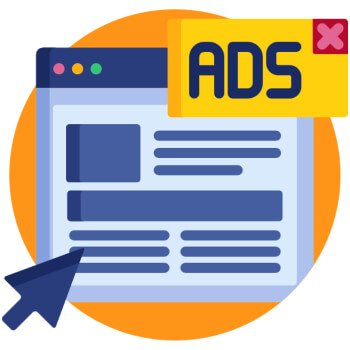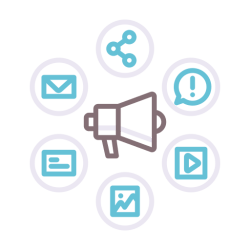blogging to make money
Can You Really Make Money By Blogging?
Can You Really Make Money By Blogging?

Blogging has been around for a long time on the Internet. It started out as a creative outlet for people to take their personal journals online to share with family and friends.
It branched out into outlets of information to be shared by experts and now people use them for a money-making opportunity.
Millions of people visit blogs every day for information or entertainment purposes. A lot of the blog visitors are ones that come back to check in on the latest entries into a blogger’s world.
They link their blog to your blog, which increases your reader base. The blog’s traffic becomes so huge that your chances for earning increase. Using AdSense ads are the most popular way to generate income from your blog.
By strategically placing the ads on the blog, you can entice visitors to click on them, with each click earning you a share of the profits Google takes in. While a couple of clicks earn you very little, a high flow of traffic and clicks earns you a substantial amount.
To make a lot of money with AdSense, you have to drive traffic to the blog. The most important concept with AdSense is to remember that you have to make the ads visible and not hidden somewhere in the blog where they can’t be seen. The more people who click away, the more money you’ll make.
Another way some people make money from their blogs is by using advertisement space. Advertisers scramble to place one of their banners on the more popular blogs. They’re willing to pay you based on the traffic numbers you generate and the prime space available within your blog.
There are many ways you can monetize ad space. You might charge a flat fee, take a commission based on the number of click-throughs, or make a deal where you get a percentage of the sale of a product, much like an affiliate marketer does.
Choose a topic that has a high number of searches, launch a free blog at Blogger.com or WordPress.com, and strategically implement your ads and offers to start seeing a steady income build over time.
However, if you want to take blogging seriously, you need to consider paying for hosting and a domain name and using WordPress.org because you will have much more control over your blog and this is critical for your success in the long run if you are thinking about using your blog as a serious money maker.
Now you have your blog up and running, you need to get traffic to it and spread the word about it and there are a number of ways to do that.
Where To Advertise Your Blog For The Best Results

Getting your blog set up is the easy part of the process. Now comes the difficult part – getting visitors! You need to find traffic to come to your blog or it won’t be a profitable investment of your time.
Start with the free options and as you begin to see a return on your investment of time, you can invest some profits back into marketing your blog with paid options.
Free
- Join message board communities. This is a simple way to advertise your blog. Interact with your fellow users and advertise your blog in your signature line, if it’s allowed. If it’s not allowed, there’s usually a folder available within that forum that does allow you to advertise your sites. Use them.
- Join a social networking site. These sites are a good way to network with like-minded people who are interested in the same subject your blog is about. Join the community and get to know the other members and then you can supply them with a link to your blog. Many in social networking circles provide cross-promotions, so you’ll probably accumulate a lot of valuable backlinks to your blog.
- Utilize social bookmarking sites. Write a great thought provoking post on your blog and submit it to sites like Digg.com or del.icio.us. There are hundreds of people who spend hours at these sites searching for good websites to check out. Your blog can get a surge of traffic through this strategic and viral sharing method.
- Join a blogging community like BlogEngage (Paid) or DoSplash. This offers you a way of connecting with other bloggers who may do a review of your blog on theirs, which would help drive more traffic to your site.
Paid
- Use advertising campaigns like Google AdWords. Place an ad on the search engine result pages and pay only when someone clicks on the link. Make sure you use the best keywords to get the ad noticed, so that you can drive more traffic to your blog.
- Use text link advertising. Contact some of the more popular blogs in your niche and see if they would be willing to sell you some advertising space through text links. If the price is right, take the chance to have traffic driven to your site from theirs. Not all sites will be willing to do this, so keep trying different ones until you get one to say yes.
And remember, if you want a premium training on blogging the right way, check out the Rapid Blogging Blueprint which includes over the shoulder training on blogging the right way.
Or, if you just want some more basics to see whether blogging is right for you, check out the featured resource below for a free Blogging Fundamentals report; download, read it and take action 😊

Make Money Blogging As A Career
Make Money Blogging As A Career

Blogging has been a widely known concept for quite some time now. While they may not know the technical ins and outs of how it works, many men and women have heard about blogging in pop culture.
Julie and Julia is a good example of this. It’s a movie that originated from a true-life tale of Julie Powell, who set out to blog about her experiences cooking each of Julia Child’s 524 recipes from her book Mastering the Art of French Cooking in just 365 days.
The benefits of blogging are huge; it is free or cheap to start so the risk-reward benefits are huge. Starting a blog is simple; you can start with a WordPress blog for free if you want to, but I would suggest paying a few bucks for a domain name and hosting if you want to take the whole thing seriously and really want to make money blogging.
How Blogging Works And Where Most People Go Wrong
![]()
Looking for “blog jobs” online is something many people do these days. They know they love to post on Facebook, and they hate their current 9-5 job, so they think they’d love to get hired as an official blogger for a company.
But you have to understand that when a company sets out to attract a blogger to represent their business online, they don’t want an amateur blogger. They want someone who knows how blogging works and understands the business side of blogging – because when you’re a blogger, you’re building a brand (or destroying it, in some unfortunate cases).
When you start looking at professional blogger-for-hire jobs, you’ll see that they want you to understand online marketing fully, they want you to deliver a certain number of blog posts per week (usually five), and sometimes want you to go out and find guest blogging opportunities where you can blog elsewhere and link back to their main blog.
It’s not a good career for someone who is new to blogging and thinks it “might be fun.” This is for seasoned professionals – and sometimes the company will even want to investigate to see what kind of current reach you have with your own content in the social media world.
If you’re already at a company that doesn’t have an online presence, then maybe you can make a suggestion that they allow you to head up that operation. This would give you a little experience so that you could then go out and brag about launching and generating a good buzz for your current company.
Blogging To Make Money
![]()
The do-it-yourself blogging to make money route is far more rewarding. It’s something you can do anytime – in the morning before work, on your lunch hour, after work and on the weekends.
Then when it becomes profitable, you can use it to replace your current income and begin blogging fulltime. When you choose this path, you have much more personal satisfaction in your blogging career.
If you want to learn more about monetizing your blog, check out this post here.
You have to treat this like a business from the very start. If you start blogging haphazardly, then your readers will recognize that it’s an amateur site. Yes, some will become fans anyway – but others want to know they’re following a leader in whatever niche you choose to blog about.
How do you pick a niche for your blog? Some blogs have a multitude of topics – from entertainment to fashion to business to health. You can do that, but unless you have a team of contributors, it’s hard to maintain the momentum needed for a broad blog like this.
A better option might be to narrow down your focus into something that you really love. It can still be broad – like a women’s health blog for example. But it’s not as narrow as “everything” or “health in general” (including both genders).
You can even drill down more and go with one form of women’s health, like menopause or pregnancy. You don’t even need to be an expert in it – it’s all about sharing information and as you learn, you can share!
If you dread it because it bores you or it’s depressing, then you won’t help your readers and the blog won’t become profitable for you.
Aside from the overall slant, you get to choose what each individual entry on your blog is all about. If you were blogging for another company, they might tell you what to blog about each day – even if you found it mundane.
You can set an entire editorial calendar for your blog where you choose which topics are presented to your readers. You also get to pick the tone for the blog pieces.
For example, let’s take the diet niche. You could be a fad and trend diet blogger who emphasizes fast weight loss – or someone who harps on the fact that weight loss should just be the adoption of better nutrition and exercise and the pounds should come off slowly.
Benefits Of Blogging: Developing A Relationship With Your Readers
![]()
Having a relationship with your readers means they value your blog, and they share the link to it with other people. You want that type of connection because as a professional, the traffic and branding that you gain will be priceless.
When blogs have a loyal readership, they enjoy a fantastic word of mouth traffic flow. While many bloggers are out there buying links back to their site and paying people to help them get traffic, you can do it all for free.
Do some preliminary keyword research to find out what people want to know in your niche. Using the menopause example, you could go to UberSuggest.org and type in what are menopause.
This is known as a sentence starter – and it gives you some insight into what type of blog post you might want to do, such as:
- What are menopause hot flashes like?
- What are menopause symptoms caused by?
- What are the best menopause vitamins?
A good keyword tool gives you help on what to blog about. But there’s more that you can do to find topics. You can look in forum threads and see what people are asking.
You can also simply invite your readers to submit questions to you. You can do this on your email autoresponder opt in form, or have a special contact form on your blog where people can engage with you that way.
Whenever someone emails you with a question, you can assume there are more people out there who are wondering the same thing. Use those questions as fodder for your blog topics.
When you start blogging about all of these things, it makes the audience feel like you’ve really got your finger on the pulse of the marketplace – like you have great instincts.
Next, write in a highly conversational style and end each blog with an invitation to connect. People need to feel like you’re speaking just to them – even if you’re not.
When you end a blog post, you can ask a question or invite people to share their own $0.02 about the topic in the comments. Make sure that whatever comment system you’re using, it’s easy to find – because some are almost hidden.
Participate in the conversation that goes on in your blog comments. If people are kind enough to take you up on your invitation, then make an effort to have a dialogue with them.
Thank them for their comment, call them by name, and open up a discussion about what they had to say. You can use a plugin to help the comments become “threaded,” which helps all of your readers see who was responding to who.
Supporting Yourself Financially And Make Money Blogging

When you start blogging for profit, you should be consistent with your efforts. You should blog regularly – daily if possible, but at least several times a week. There are a few ways you can make money as a blogger.
Build a list from your blog so that whenever you have a new blog post, you can notify people about it. Also have an RSS system set up for people who use RSS feed readers to get notified of your new content.
Whenever you have a list, it gives you a certain amount of power – the power to instantly communicate with your target audience when you are selling or promoting products.
Sell ad space for a certain amount of profits. You can arrange a specific area of your blog for ad space that people rent on a monthly basis, paying the ad revenue to you directly.
If you go this route, make sure you have specifics in place to control what kinds of ads can get placed on your blog – all the way down to the colors and animation of it if you want.
Sign up for AdSense, too. This can help you get clicks and revenue. You can put different sized ad banners on your blog, from buttons to skyscraper ads. You can include images or go with just text.
One thing you have to remember whenever you place any ads on your blog is that yes, it gives you some money when people leave your site for somewhere else – but in leaving, it also means someone else is capturing their name and email address and selling something to them, not you.
Promote tangible products as an affiliate. You can sign up as an Amazon Associate and promote anything they sell there that they offer a commission on. Using our menopause example, if you promoted a chilled pillow, you could earn a percentage of each sale from your blog post.
Promote digital products as an affiliate. Digital products can be found at sites like ClickBank.com. You can sign up for free and get a hoplink (affiliate link) where you earn around 50% for each sale.
Offer services from your blog. Freelancing like writing, graphics, or other services can be offered right from your blog. Coaching is something you can offer. Many people pay top dollar for one-on-one coaching sessions via Skype or even email!
Blogging can be a very fun and very profitable venture if you approach it correctly. Don’t make the mistake of flying by the seat of your pants. If you do this, your blog will be scattered with topics, have no set monetization plan, and you’ll end up unhappy with the effort you’ve put in.
With proper planning and enthusiasm, you’ll never need to look for “blogging jobs” again – in fact, you might be the one putting out feelers for a professional blogger to come onboard and help you with your content needs! Being in a position of power makes a world of difference.
And remember, if you want a premium training on blogging the right way, check out the Rapid Blogging Blueprint which includes over the shoulder training on blogging the right way.
Or, if you just want some more basics to see whether blogging is right for you, check out the featured resource below for a free Blogging Fundamentals report; download, read it and take action 😊

Use Blog Challenges To Coach New Online Marketers

If you’re an Internet marketer who teaches Internet marketing to others, it’s important to help the readers of your blog learn how to adapt to a blogging ritual seamlessly.
Blogging is one of those tasks that many new marketers jump into without understanding how it works. They know they need to blog (because all of the top successful marketers do), and maybe for a few days – or even weeks – they stick to it religiously.
They sit there staring at the screen, unable to decide what they’re going to blog about. Sometimes they start swiping other people’s content because they don’t want to lose the momentum of posting daily.
They might grab something from an article directory or buy some PLR content and use it as is. This is where they start getting lazy, not because they want to be, but because they’re simply lost on what topic to discuss.
Others don’t want to neglect their blog – but the formidable task of trying to juggle a myriad of Internet marketing items on their to do list prevents them from getting to their blog – they’ve backburnered it and soon it’s forgotten and stagnant.
You can host a blog challenge for your readers that will help them in any niche! Whether they’re marketing bloggers, or they have a blog on gardens, insomnia, or dating – your challenge will help them take action, stay committed and view you as a leader.
OK, let’s crack on…
What Blogging Challenges Do Your Readers Suffer From?

You should be able to listen to your subscribers and see some common themes among them when they come to you with blog problems. If you don’t have subscribers yet (that you know of since many are lurkers), then you might have to read other blog comments or look in forums to see what issues people have.
Finding topics is a common problem for many bloggers. People sit there staring at their screen, or they go to someone else’s blog to see what they’re talking about.
They key is to help them learn how to find topics – how to dig up new slants and fresh ideas and give commentary on them.
Making an engaging connection is a big deal – and so many marketers falter with this. Everyone wants to see blog comments or get emails about how amazing their blog post was!
Monetizing their blog post could be an issue. You wouldn’t believe how many bloggers are sitting there wondering why their blog isn’t making money, when the only problem is, they forgot to add links!
Consistency is probably the number one problem, though. People get sidetracked and for some reason, their blog – what should be their “home on the ‘net” – is what usually suffers.
Preparing Your Blog Challenge Ahead Of Time

Hosting a blog challenge is a great way to get a ton of branding for your blog, as well as traffic and comments for it, too. You want to go into this well-prepared, not floundering right alongside your readers – they’re expecting you to guide them!
First, announce the date ahead of time. Get everyone geared up to participate. Have them sign up – either simply by announcing their participation in the comments section of your blog, or by having them sign up to your email autoresponder list.
Let them know what the basic challenge will be. Create a list of rules, but don’t make it so stringent that people feel like labeling themselves failures. You want to inspire them and encourage them to keep going even if they miss a blog post.
Map out your helpful blog posts that you’re going to create along the way. You will be blogging daily to give tips and ideas, share your own entry to the challenge, and create a space for them to discuss it and encourage each other.
Some people might want you to create a forum for the discussions. Keep it on your blog. As the host of the challenge, your blog will benefit from the traffic and conversations taking place.
Give them any tools and tutorials you think they’ll need. If your blog challenge is to have them get comments, then you might steer them towards something like Disqus and give a tutorial on how that works.
This is not only a good way to be a leader, but it can help you make affiliate sales of certain links for people’s blogs, like paid plugins or WordPress themes, for example.
Supporting Your Challengers

As the host, it’s your job to support the people who are following you and participating in your challenge. Now if you have hundreds of people, it might be more difficult – in that case, you can just encourage people to support each other.
Allow them to share their blog post link. You can let them leave it in the actual comment as a live link, use a tool like Disqus, or just have their name hyperlinked to their website.
Leave a comment for them to show them they have traffic and encourage comments and sharing by others. By the time the challenge is over, they will have a thriving community – many will stay and at the very least, it shows search engines and new visitors that this person has an active blog!
Check in with those who stray. When everyone signs up, make a list of the name and email of the people participating. If you notice someone falling by the wayside, shoot them a friendly email of support. Sometimes they just need to be nudged.
Challenge Idea #1: Encourage New Media Formats

Blogging isn’t just about text blog content, although that is the most prevalent for of blogging that there is.
You can host a challenge that urges participants to get used to multiple media formats.
This will get people out of their comfort zones, but it will help them learn how to cater to many of their subscribers across the board. When the challenge is finished, they’ll be able to use more than one format and switch things up for their audience.
Challenge Idea #2: 1-A-Day Affiliate Marketing Reviews

Because affiliate marketing can be so profitable through the use of a blog platform, it’s important that you help your readers learn how to master this.
For your affiliate blogging challenge, have some guideline steps like this:
- Pick one product over $25 (or $50 or $100 or whatever)
- Make sure it’s rated at least 4 stars
- Write a review of at least 500 words per blog post
- Each blog post should have specs, pros, cons, and consumer insight
- Blog posts should have at least 2 hyperlinks to product (*Optional – 1 hyperlink to a top competitor product)
These kinds of details will help them from getting stuck trying to decide between one product and another. It also gives them guidance on the structure of the blog post.
Challenge Idea #3: Thought-Provoking Shareable Content

These are fantastic challenges to do on your blog. The concept of this challenge is pure 100% quality. You’re asking your readers to create blog posts that knock the socks off of their readers.
This isn’t about monetizing the exact blog post – but it can result in increased income because they gain a loyal following. This is definitely one you’ll want to give them time to map out a couple of weeks ahead of schedule.
The goal here is to make sure they have their social networking buttons working. You want their visitors Tweeting, Google + sharing and Facebook sharing these blog posts because they’re that good.
Challenge Idea #4: Curated Blog Content

Curation is a buzzword in marketing circles, but it’s a fantastic way to build a blog readership! First, you need to explain to your readers what curation means. You don’t want them getting confused and swiping other people’s content and plagiarizing it.
Curation is when you act similar to how a museum curator acts – gathering pieces to represent a concept as a whole. The curator then provides commentary about the pieces to pull it all together.
They can curate a video from YouTube, a news story, or an audio file quote. Make sure they understand that it’s not about sharing someone else’s work – it’s about adding their own insight about that work and giving the original creator credit with a link.
Curation doesn’t always have to be positive. It can be a negative curation, where they’re showing poor examples of something. Just make sure they understand they might get some heat for this from the first author.
Challenge Idea #5: One Idea Fits Everyone

This is a good twist, but only if everyone is in the same niche. If you’re teaching other marketers, then this would be a viable possibility. If you have one in the gardening niche, another in dating and one in smoking cessation, this won’t work.
Everyone in the challenge would write about that topic. It’s interesting to see what slants people have on issues. So for instance, you might have these on your list:
- Top 5 Conversion Tips
- Review of the Plugin ThriveLeads
- Is JVZoo Better Than ClickBank?
Whatever topic you want to choose – see what the slants turn out to be after they are published. Don’t tell them what to write, just give them the basics. Your group will love being in these blog challenges and seeing their productivity soar!
By the way, if you want to know more about blogging the right way, why not check out the featured resource below for a free blogging report. Download, read it and take action 😊

Which Type Of Blog Should You Create To Make A Profit?

So, you have decided that you want to make money online and want to start with blogging. That’s great but do you know what type of blog you should be creating if you want to monetise it?
And if you have an existing business, why not incorporate a blog into that too to boost your earnings 😊
There are several different types of blogs out there. Not all will earn you money… and even those that you think will generate an income, might not – if you commit a few cardinal errors.
This article will shed light on a few types of blogs and what you can do with them. Instead of pigeonholing the blogs into specific categories, it’s important that you view them based on their income-generating possibilities rather than the purpose for which they’re built.
OK, let’s crack on…
Personal Blogs

These types of blogs have very low income-generating potential. Generally, they’re nothing more than online ramblings where you write about your thoughts and feelings on what’s going on in your life, etc.
For example, a lady who has a personal blog may decide to write about make-up tips and so on and start promoting cosmetics, skin care products, etc. It’s possible – but difficult to make money with this type of blog.
Niche-Specific Blogs

These are the most common types of blogs which are created to target a specific audience. If you wish to do affiliate marketing or sell your own products, you’ll want to create these niche blogs.
It’s important to get an umbrella domain for the market while you niche down. What does that mean?
Let’s assume you wish to create a blog on ‘homemade dog food’, buying a domain that’s too closely related to the niche such as DogFoodZone.com will stifle your growth. What if you wish to blog about dog training in future?
Instead, you may buy a domain such as HealthyPaws101.com (this domain is probably taken, but you get the idea).
Well, with the HealthyPaws101 domain, you can start blogging about puppy training. It will be a new category on your blog. As time goes by and you start going deep into each different and related category, you’ll have an authority site.
This is how authority sites are built. They’re just a niche sites that grew big.
Journey-Type Sites

These sites are similar to personal blogs, but they have a purpose here. Let’s assume you’re overweight and decide to go on a weight loss journey. So, you start a blog to journal your progress and let people know what you’re doing.
When you have progress, you can share what tools and methods you’re using. If you’re following a program such as P90X, and losing weight, you can share your affiliate link to the Beachbody website and make commissions when others sign up.
Herein lies the crux of this type of blog – You MUST be making progress and succeeding for people to trust you.
It doesn’t matter if it’s an online marketing blog or a keto blog or even a calisthenics blog. You MUST have results for people to trust you. Your success and progress will spur them to trust your journey and do what you’re doing – and buy what you’re using.
Curation Blogs

These are blogs with different topics that you’ll curate content from different sites.
Beginners would do well to steer clear of these types of sites. You’re better off targeting one niche and building a brand and an audience.
Guest Post Blogs

Similar to curation, but you’ll be vetting the different guest posts and only posting what’s relevant to your niche. This is more of a technique than a type of blog per se. Some blogs are totally made up of guest posts… while others have lots of content created by the blog owner and the guest posts are also thrown into the mix.
You’ll need to decide if you need guest posts to supplement your content marketing efforts or if you’d rather have a blog where all content is proprietary (with no need for outbound links).
Besides these types of blogs, there are blogs that are dedicated to teaching… or the pursuit of a certain lifestyle, etc.
The profitability of a blog is dictated by its ability to sell. You’ll do that with affiliate links, product links, ads, and also build a list that you can re-market to in future.
While you don’t need all these components in place, you definitely need the list building and the links that translate to sales. Your blog only makes money when people buy from or through you.
Create a blog that people love because of its value… and they’ll trust you and buy whatever you recommend.
“Successful blogging is not about one time hits. It’s about building a loyal following over time.” – David Aston


